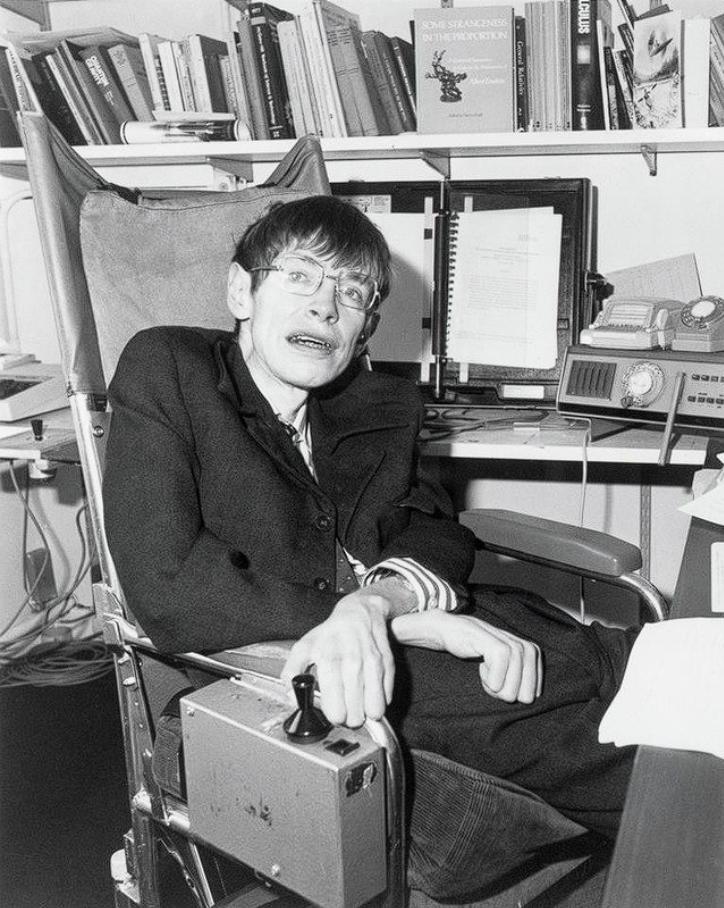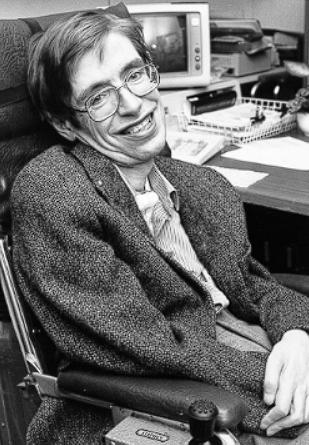Stephen Hawking: A Journey of Resilience and Cosmic Discovery
A Brilliant Mind Born to Explore the Stars
Stephen Hawking, one of the most brilliant minds of the 20th and 21st centuries, redefined the way we understand the universe. But his story was not just one of intellectual brilliance — it was also one of extraordinary courage, resilience, and the unyielding human spirit in the face of overwhelming odds.
Born on January 8, 1942, in Oxford, England, Hawking’s curiosity about the cosmos began at a young age. His fascination with the stars and the mysteries of the universe would ultimately lead him to study at the University of Cambridge. It was there, at one of the world’s most prestigious institutions, that Hawking would make groundbreaking contributions to the field of theoretical physics and cosmology. His work on black holes, the nature of the universe, and the very concept of time would make him one of the most respected scientists of all time.
An Unimaginable Challenge
Defying the Odds with Unyielding Determination
Just as Hawking was beginning to carve out his place in the scientific community, life presented him with an unimaginable challenge. At the age of 21, while pursuing his studies at Cambridge, he was diagnosed with ALS (amyotrophic lateral sclerosis), a progressive neurodegenerative disease that slowly paralyzes its victims. Doctors gave him a grim prognosis, suggesting he had only a few years to live. Yet, Stephen Hawking defied those predictions — not only living with ALS for over 50 years but continuing to innovate and push the boundaries of science in ways that no one could have foreseen.
As his body deteriorated, his mind soared to even greater heights. Despite being nearly completely paralyzed, Hawking’s intellectual output remained staggering. His capacity to communicate complex scientific ideas and make them accessible to the general public was one of his most remarkable achievements. Through his pioneering work, he reshaped the understanding of the universe in ways that were once thought impossible.
A Brief History of Time: Making the Cosmos Accessible
Sharing the Wonders of the Universe with the World
Stephen Hawking’s best-selling book, A Brief History of Time, made complex principles of cosmology understandable to millions of readers worldwide. The book was a cornerstone of popular science literature and brought the mysteries of black holes, the nature of time, and the origins of the universe into the homes of people across the globe. Through his books, lectures, and public appearances, he made it possible for anyone, regardless of their background, to contemplate the wonders of the cosmos.
His work on black holes, particularly the discovery of Hawking radiation — the idea that black holes emit radiation — challenged conventional understandings of physics and space. This theory reshaped the way scientists view the relationship between quantum mechanics and gravity, and it has remained one of his most significant contributions to science.
Triumph of the Human Spirit
Overcoming Physical Limitations Through Technology and Perseverance
Despite the physical limitations imposed by ALS, Hawking’s intellectual and scientific achievements were unparalleled. As his physical condition worsened, Hawking developed a sophisticated system of communication that allowed him to continue engaging with the scientific community. Using a cheek muscle to operate a computer, he was able to speak through a speech-generating device, delivering lectures, conducting research, and continuing to contribute to the field of theoretical physics.
His persistence in the face of physical adversity became a powerful symbol of the resilience of the human spirit. Hawking showed that there are no limits to what the mind can achieve, no matter the challenges the body faces.
Advocacy and Humor: A Legacy Beyond Science
Championing Accessibility and Enjoying Life’s Moments
In addition to his groundbreaking scientific work, Stephen Hawking became an advocate for individuals with disabilities. He used his platform to raise awareness about accessibility and to challenge perceptions about the capabilities of those living with disabilities. His work with the disabled community was an extension of his belief that there are no limits to human potential.
Hawking also had a sharp sense of humor that endeared him to millions. Despite the seriousness of his condition, he never lost his ability to laugh and bring joy to others. His memorable cameos in shows like The Simpsons and Star Trek: The Next Generation showcased his charm and wit, further solidifying his place in popular culture.
A Legacy of Resilience and Discovery
Reaching for the Stars
Stephen Hawking’s life was a testament to the power of the human mind and the unyielding will to overcome obstacles. His scientific contributions will continue to shape our understanding of the universe for generations to come. But perhaps more importantly, his life serves as an enduring reminder that no matter what challenges we face, the human spirit has the capacity to reach for the stars.
Hawking passed away on March 14, 2018, but his legacy endures. His groundbreaking work, his resilience in the face of ALS, and his advocacy for the disabled community continue to inspire and inform us. He showed us that there are no boundaries to what we can achieve, no matter how insurmountable the odds may seem.
“Remember to look up at the stars and not down at your feet. Try to make sense of what you see and wonder about what makes the universe exist.”
— Stephen Hawking

